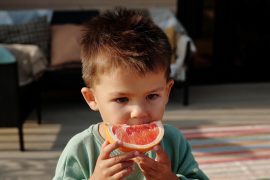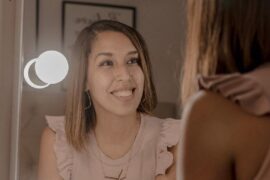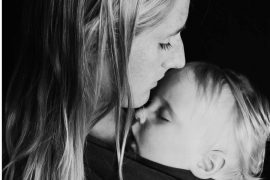This isn’t easy — in fact, it’s very hard! — but it is possible. And like most things, the more you do it, the easier it gets.
Here’s the secret. When you start to lash out, for any reason, try to remind yourself to simply stop. Drop your agenda (just until you calm yourself.) Take a deep breath.
If you can calm yourself down before you respond to your child, you’ll find that the entire interaction is different.
You’re more relaxed and emotionally generous, even when you guide and correct. So the drama de-escalates.
Because all behaviour is communication, you’ll find yourself understanding your child better. A child who feels understood is more likely to cooperate, even in the face of limits they don’t like. You being less reactive won’t “cure” any special challenges your child has. But it will change the tone of your bond with your child, making it sweeter and stronger. Your child will feel safer. All of which will help your child to reach for their best self more often.
Remember that when we bring more mindfulness to our bodies, we sometimes begin to release stored-up tears.
After all, the body keeps the score in our emotional lives. Breathing opens the door to more awareness of the sensations and stored emotions in our bodies. If this happens for you, welcome those tears. Healing those old hurt places is a step toward a happier, healthier you — and therefore a better relationship with your child.
Today, I encourage you to stop and breathe throughout your day. Every time you’re upset. When you find yourself in traffic. When anyone in your house begins a meltdown. (Especially you.)
Breathing seems so simple that you may find it hard to believe its power. But as Sam I Am said about Green Eggs and Ham, “Try it, try it, and you may!”
Find the original article here.
Dr. Laura Markham is the founder of AhaParenting.com and author of Peaceful Parent, Happy Kids, Peaceful Parent, Happy Siblings and her latest book, the Peaceful Parent, Happy Kids Workbook.










